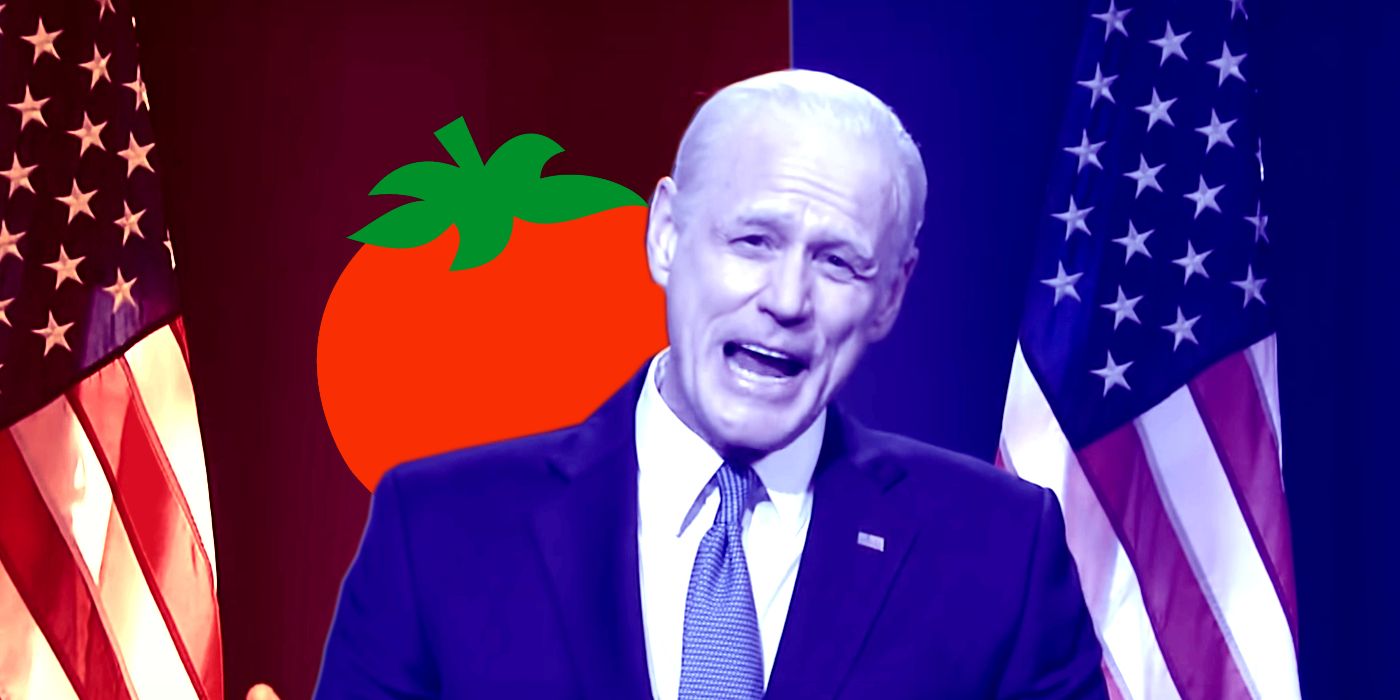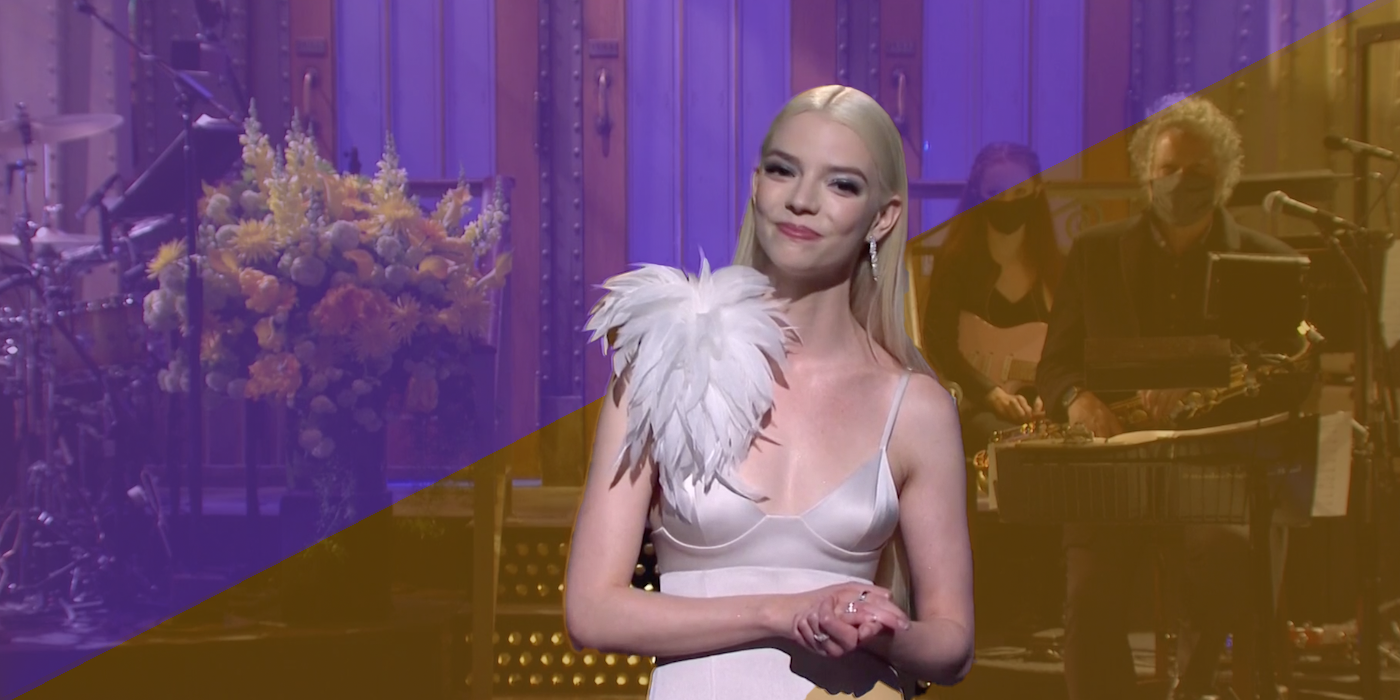Saturday Night Live season 46 mostly pleased critics with the quality of its 20 episodes, however general audiences weren't impressed despite the good reviews. To be fair, this dynamic frequently emerges from year to year, as many yearn for the glory days of SNL. Based on the collective reviews for Saturday Night Live season 46, creator Lorne Michaels succeeded by focusing on the present, rather than recycling bits from the past.
In October 2020, Saturday Night Live returned for its 46th season with Chris Rock as host and Megan Thee Stallion as the musical guest. While the U.S. presidential election approached, the ratings remained consistent thanks to celebrity headliners such as Bill Bur, Issa Rae, Adele, and John Mulaney. Viewership then peaked in November 2020 when Dave Chappelle hosted Saturday Night Live just hours after Joe Biden officially became America's new chief executive. The NBC series remained popular over the following three weeks, however the ratings for the final 10 episodes dipped, suggesting that Saturday Night Live didn't necessarily inspire meaningful pop culture conversations.
As of now, Saturday Night Live season 46 has a 79 percent Tomatometer score at Rotten Tomatoes (based on over 140 critic ratings), with the audience score being much lower at 32 percent (based on just 56 user ratings). These numbers are helpful when assessing the overall quality, but don't quite reflect the weekly criticism from online skeptics. However, Michaels can usually expect that audiences won't be happy unless there's a true breakout star in the main cast, like Adam Sandler and Chris Farley from the early '90s, or Will Ferrell and Kristen Wiig from more recent years. During Saturday Night Live season 46, the collective talent faced the challenge of producing smart, political-themed bits while appeasing locked-down streamers and trying to stay relevant with millennials. Here are some positives takes on the 46th installment of the iconic NBC series.
"Bateman delivered something short, punchy, and unfussy, setting the tone for the rest of this likable, fairly unmemorable episode that also felt closer than usual to the show's at-home episodes from the spring."
(Episode 7, 100 Percent RT Score)
"Levy, like last week's host, John Krasinski, represents a decision on the part of SNL to start the year with some gentle, loving, reliable comedy. He rose to the occasion during the show, showing fans a lot more than just little permutations of David Rose..."
(Episode 11, 100 Percent RT Score)
"The writers played directly into [Regé-Jean Page's] moment as Bridgerton's sex god, with the actor good-naturedly in on the joke and along for the ride."
(Episode 13, 100 Percent RT Score)
"Unlike a lot of dramatic actors hosting SNL, the writers gave Mulligan plenty of room to play and she made good use of it. The show even made space for musical guest Kid Cudi to get in on the comedy."
(Episode 17, 100 Percent RT Score)
"Anya Taylor-Joy was aces as host, her mix of acting professionalism, comic confidence, and obvious enjoyment an utterly contagious center to what was easily the most breezy, funny, and relaxed episode of the year. F**k it, it was joyful."
(Episode 20, 100 Percent RT Score)
Based on critics reviews, online reactions, and Screen Rant's own coverage, Saturday Night Live often struggles to transcend above ha-ha comedy. Meaning, audiences know what to expect with the cold open and Weekend Update segments, and there will typically be one or two sketches that stand out (which should be the norm for a sketch comedy show) Overall, Saturday Night Live seems too invested in a comedic formula that will theoretically appeal to millennials, evidenced in part by Pete Davidson's frequent commentaries about marijuana, pop culture trends, and his personal struggles. Critics have also noted that hosts often seem underutilized, presumably because of weak joke material. All in all, Saturday Night Live often tries too hard to capitalize upon trending topics, rather that prioritizing original sketch comedy bits that will allow everybody to shine. Here are some critical takes on season 46:
"Much like Trump's own turn, Musk's episode was, on the face of it, unremarkable. None of the sketches was particularly funny or particularly cringey, or triggered a major fallout."
(Episode 18, 13 Percent RT Score)
"The show has struggled with political humor in the Trump era, when the crassness of reality can obviate the need for satire, and this week's season premiere opened as shakily as ever..."
(Episode 1, 20 Percent RT Score)
"It would have been fun to see [Bill] Burr do something different, to play against type... Maybe the limitations were meant to make Burr feel comfortable, but it also made for a pretty cloistered episode."
(Episode 2, 50 Percent RT Score)
"Jonas was pleasant, bland, and ready-made for the cameras, his lifetime in show business evident in every practiced line and gesture... There's ease in front of the cameras, and then there's a studied eagerness to please that just doesn't work on SNL."
(Episode 14, 60 Percent RT Score)
According to critic reviews, Saturday Night Live has thrived between 2018 and 2021, even if the show seems like it's not getting better. Online, there will always be someone complaining about the comedic quality, and the fact remains that some people just enjoy slamming the show. What's important, though, is that Saturday Night Live keeps people talking and engaged. Even though some cast members weren't thrilled about Elon Musk hosting in May 2021, the show didn't end up being a complete disaster. Saturday Night Live season 46 may not be full of laugh-out-loud bits that will inspire a new generation of sketch comedy performers, yet the series remains popular and relevant.


